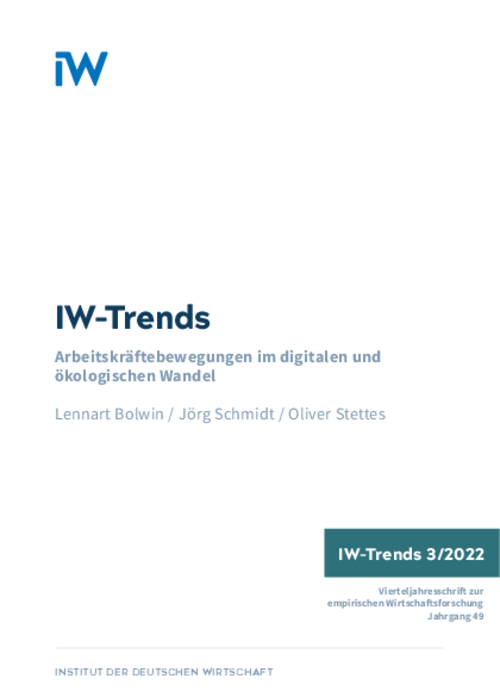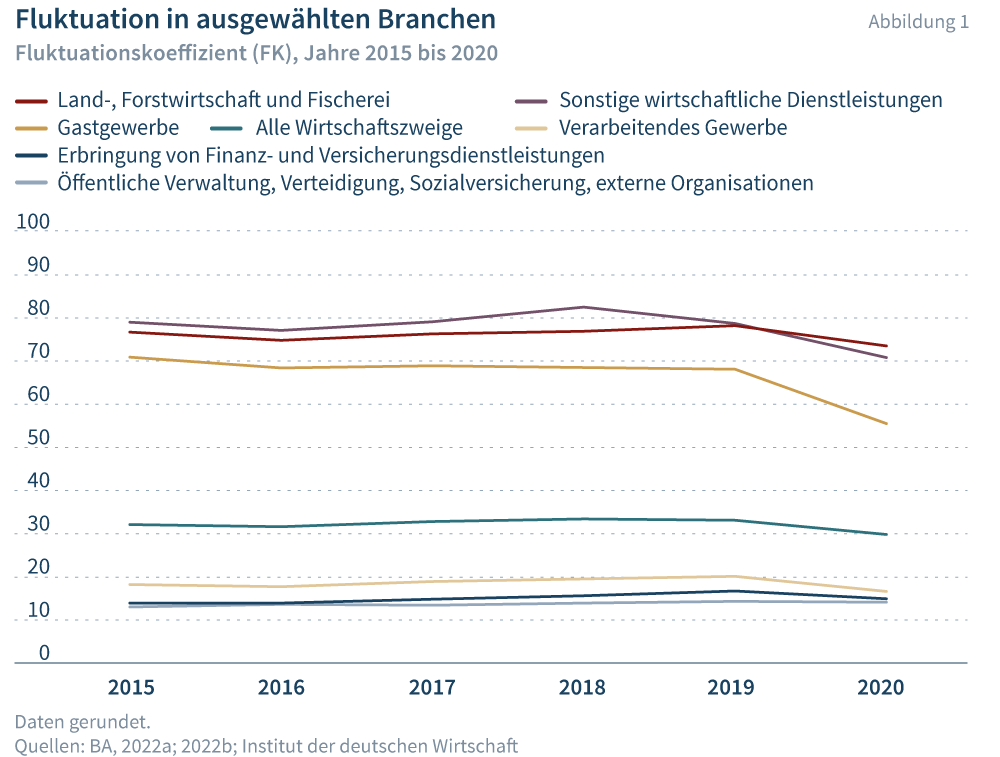Every year, on average, approximately every third job in Germany sees a change of occupant. However, the fluctuation coefficient, which describes turnover in the labour market, has fallen noticeably in the wake of the Covid 19 crisis – from 33.1 per cent in 2019 to 29.8 per cent in 2020.

Labour Mobility in Times of Digital and Ecological Transformation

Every year, on average, approximately every third job in Germany sees a change of occupant. However, the fluctuation coefficient, which describes turnover in the labour market, has fallen noticeably in the wake of the Covid 19 crisis – from 33.1 per cent in 2019 to 29.8 per cent in 2020.
Taking only the data for the first half of each year shows that, at 14.5 per cent for 2021 compared with 15.9 per cent in 2019, the extent of job changing in the German labour market remained significantly lower in the second year of crisis than before the virus struck. However, behind the figures for the national labour market lurk significant sectoral differences. For example, labour turnover is high in the hospitality and ‘other business services’ sectors, but low in manufacturing and the public sector. The present empirical analysis fails to turn up any evidence of digitalization or the ecological transition contributing to these differences in labour turnover in the various sectoral clusters. Indeed, there appears to be no systematic correlation between the level of the fluctuation coefficient and four indicators that capture the stage reached by the transformation in each branch of industry. Thus, it remains an open question whether the labour market will become more dynamic as digitalisation and moves to combat global warming continue to transform the economy.


Labour Mobility in Times of Digital and Ecological Transformation

More on the topic

Orphaned executive chairs in German companies
In 2023, half of the companies in Germany reported increasing problems in filling vacancies for management positions because employees are not aiming for a career. Larger companies are less affected than small companies.
IW
Office work in transition: Analysis of the working conditions of office workers
Office work has changed considerably over time and reflects both technical progress and the zeitgeist of the decades.
IW